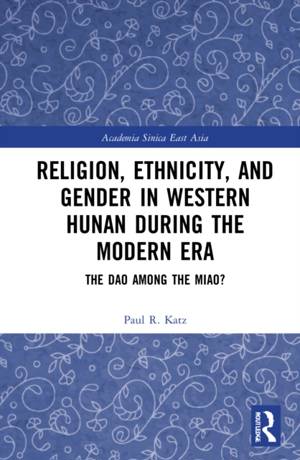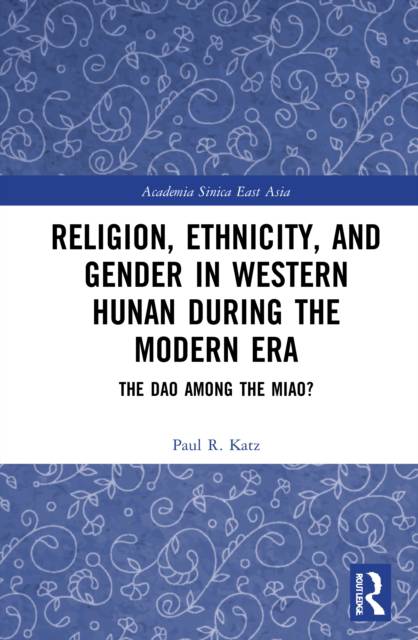
- Afhalen na 1 uur in een winkel met voorraad
- Gratis thuislevering in België vanaf € 30
- Ruim aanbod met 7 miljoen producten
- Afhalen na 1 uur in een winkel met voorraad
- Gratis thuislevering in België vanaf € 30
- Ruim aanbod met 7 miljoen producten
Religion, Ethnicity, and Gender in Western Hunan During the Modern Era
The DAO Among the Miao?
Paul R KatzOmschrijving
This book explores how beliefs and practices have shaped the interactions between different ethnic groups in Western Hunan, as well as considering how religious life has adapted to the challenges of modern Chinese history.
Combining historical and ethnographic methodologies, chapters in this book are structured around changes that occurred during the interaction between Miao ritual traditions and religions such as Daoism, with particular focus on the commonalities and differences seen between Western Hunan and other areas of Southwest China. In addition, investigation is made into how gender and ethnicity have shaped such processes, and what these phenomena can teach about larger questions of modern Chinese history. As such, this study transcends existing scholarship on Western Hunan - which has stressed the impact of state policies and elite agendas - by focusing instead on the roles played by ritual specialists. Such findings call into question conventional wisdom about the 'standardization' of Chinese culture, as well as the integration of local society into the state by means of written texts.
Religion, Ethnicity, and Gender in Western Hunan during the Modern Era will prove valuable to students and scholars of history, ethnography, anthropology, ethnic studies, and Asian studies more broadly.
Specificaties
Betrokkenen
- Auteur(s):
- Uitgeverij:
Inhoud
- Aantal bladzijden:
- 240
- Taal:
- Engels
- Reeks:
Eigenschappen
- Productcode (EAN):
- 9780367184681
- Verschijningsdatum:
- 20/08/2021
- Uitvoering:
- Hardcover
- Formaat:
- Genaaid
- Afmetingen:
- 156 mm x 234 mm
- Gewicht:
- 526 g

Alleen bij Standaard Boekhandel
Beoordelingen
We publiceren alleen reviews die voldoen aan de voorwaarden voor reviews. Bekijk onze voorwaarden voor reviews.











